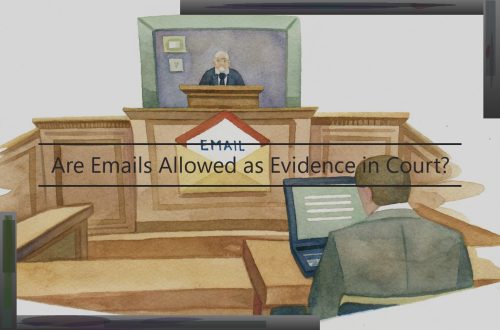
Estate and Divorce Law: Can a Divorced Wife Claim Husband’s Property After His Death?
Navigating the world of estate and divorce law can be complex, especially when it comes to understanding property rights after a spouse’s death. You might be wondering, “Can a divorced wife claim her ex-husband’s property once he’s passed away?” Let’s dive into the intricate details of this issue, exploring the nuances of estate law, divorce decrees, and property rights.
Understanding Estate Law
What is Estate Law?
Estate law, also known as probate law, is a crucial area of legal practice that governs the distribution of a deceased person’s assets. This branch of law ensures that a person’s estate is managed and divided according to their wishes as expressed in their will or, if no will exists, according to state intestacy laws. Estate law is vital for resolving issues related to the transfer of property, money, and other valuables from the deceased to their heirs and beneficiaries.
At its core, estate law addresses several important aspects, including the validation of wills, the appointment of executors, and the execution of the deceased’s wishes. Without proper legal guidance and adherence to these laws, there can be disputes among heirs, delays in asset distribution, and potential legal battles. Estate law helps to provide a clear framework for managing these issues, ensuring that the deceased’s intentions are honored and their estate is handled efficiently and fairly.
Key Terms in Estate Law
Understanding estate law involves familiarizing oneself with several key terms that play a critical role in the administration of an estate. These terms define the roles and processes involved in managing a deceased person’s assets. Here’s a breakdown of some essential terms in estate law:
| Term | Definition | Role/Function |
| Will | A legal document that specifies how a person’s assets should be distributed after their death. | Outlines the distribution of assets and wishes of the deceased. |
| Executor | The person appointed to carry out the instructions of the will and manage the estate. | Administers the estate according to the will, ensuring debts are paid and assets are distributed. |
| Beneficiary | An individual or entity designated to receive assets from the estate. | Receives assets according to the terms set forth in the will or by intestacy laws. |
| Probate | The legal process through which a will is validated and the estate is managed and distributed. | Validates the will, settles debts, and distributes assets to beneficiaries. |
Divorce Law Basics
What Happens During a Divorce?
Divorce law encompasses the legal procedures and principles involved in dissolving a marriage. When a couple decides to divorce, the process involves more than just ending the marital relationship; it includes the division of property, determination of alimony (spousal support), and arrangements for child custody and support. These aspects are crucial in ensuring that both parties and any children involved are treated fairly and that their needs are addressed.
During a divorce, the court must address several key issues:
- Division of Property: This involves determining how assets and debts acquired during the marriage will be divided between the spouses. The division aims to be fair, taking into account the contributions of each spouse and their future needs.
- Alimony: Also known as spousal support, alimony is financial support paid by one spouse to the other after divorce. Its purpose is to help the lower-earning or non-working spouse maintain a standard of living similar to what they had during the marriage.
- Child Custody and Support: If the couple has children, decisions need to be made regarding custody arrangements and child support. The court will determine who will have legal and physical custody of the children and how much financial support the non-custodial parent should provide.
These aspects are designed to ensure that the divorce process is comprehensive and that all relevant factors are considered to achieve a fair outcome for both parties involved.
Equitable Distribution vs. Community Property
The division of property during a divorce is influenced by the legal principles of either equitable distribution or community property. These principles guide how assets and debts are allocated between the spouses and vary depending on the state where the divorce is filed.
Equitable Distribution
In states that follow the equitable distribution principle, assets and debts are divided fairly, but not necessarily equally. This approach considers various factors, such as:
- Financial Contributions: The court evaluates how much each spouse contributed to acquiring marital assets. This includes both monetary contributions and non-monetary contributions like homemaking and child-rearing.
- Future Needs: The court considers the future financial needs of each spouse, including their earning potential, age, health, and whether one spouse may need more support due to being out of the workforce.
Equitable distribution aims to achieve a fair division based on the specific circumstances of the marriage, rather than simply splitting everything down the middle.
Community Property
In contrast, community property states operate under the principle that all assets and debts acquired during the marriage are jointly owned by both spouses. This means:
- Equal Division: Regardless of who earned the assets or incurred the debts, they are divided equally between the spouses. Each spouse is entitled to half of the marital property.
- Simpler Distribution: The community property approach simplifies the division process by treating all assets and debts as jointly owned. This can make the division more straightforward but may not account for individual contributions or future needs.
Community property aims to recognize the joint nature of marital assets and ensure an equal distribution between the spouses upon divorce.
Understanding these principles can help individuals navigate the divorce process more effectively and set realistic expectations about how their assets and liabilities will be divided.
Property Rights After Divorce
What Happens to Property After Divorce?
Once a divorce is finalized, the division of property is generally considered permanent. This means that each spouse typically keeps the assets and liabilities assigned to them in the divorce settlement. The goal of a divorce settlement is to provide a clear and final resolution to property issues, so neither party retains a claim on the other’s assets once the divorce is complete. However, there are exceptions. In some cases, if the divorce settlement was incomplete or if the deceased ex-spouse’s estate planning documents were not updated after the divorce, there could be lingering claims. The specific rights of a divorced spouse to the deceased’s property can vary depending on state laws and the terms of the divorce agreement.
Types of Property Claims
Property claims after a divorce can take different forms. In many cases, property settlements are designed to be final, meaning that each party walks away with their designated share of assets and debts. This finality aims to prevent any future claims on the other’s property, ensuring a clean break. However, if a divorce decree includes provisions for alimony or spousal support, the surviving ex-spouse might have some claim to assets to satisfy these financial obligations, though this largely depends on the specific terms outlined in the divorce agreement. Furthermore, if the deceased had not updated their estate planning documents to reflect the divorce, and the former spouse was still listed as a beneficiary, the ex-spouse might inherit a portion of the estate. This underscores the importance of revising estate documents after a divorce to ensure they align with current wishes.
Can a Divorced Wife Claim Her Ex-Husband’s Property After His Death?
Factors to Consider
- Divorce Settlement Terms
The terms of the divorce settlement are crucial. If the divorce decree specifically waived any future claims to the ex-spouse’s estate, then generally, the divorced spouse has no legal claim. However, if the settlement was ambiguous or if there were specific provisions for property rights after death, it might warrant further legal examination.
- Estate Planning Documents
Estate planning documents, including wills and trusts, play a significant role. If the deceased did not update their will or estate plan post-divorce, and the ex-spouse was still listed as a beneficiary, they might inherit certain assets.
- State Laws
Laws vary by state. Some states have laws that automatically revoke a former spouse’s rights to inherit from an estate if the divorce is finalized, while others may not. It’s essential to understand local laws to determine any potential claims.
Legal Precedents and Cases
Here are a few illustrative cases:
- Case 1: Smith v. Johnson
In this case, a former wife attempted to claim a portion of her ex-husband’s estate based on an outdated will that still named her as a beneficiary. The court ruled that the divorce automatically revoked her claim due to state laws that nullify such provisions post-divorce. - Case 2: Doe v. Doe Estate
Here, the ex-wife claimed she was entitled to a portion of her ex-husband’s estate due to unpaid alimony. The court considered the terms of the divorce decree and whether the alimony obligations were ongoing at the time of death.
Practical Steps for Divorced Spouses and Estate Planning
For Divorced Individuals
Update Estate Documents
After a divorce, it’s crucial to revisit and update all estate planning documents, including your will, trust, and power of attorney. Divorce often leads to significant changes in your personal and financial circumstances, and your previous estate plan may no longer align with your current wishes. For instance, if your will previously designated your ex-spouse as a beneficiary, failing to update this could result in them inheriting assets you intended for someone else. Updating these documents ensures that your estate is distributed according to your new intentions and reflects your current relationships and financial situation.
Communicate with an Attorney
Consulting with an estate planning attorney after a divorce is a wise step to gain clarity on how your divorce might impact your estate and to ensure your wishes are legally protected. An attorney can help you navigate the complexities of estate law and provide guidance on necessary changes to your estate documents. They can also advise you on any legal implications of your divorce settlement that could affect your estate plan, such as alimony obligations or changes in beneficiary designations.
For Those Drafting a Will
Review Beneficiaries Regularly
Regularly reviewing and updating the beneficiaries listed in your will or trust is essential to ensure that your estate plan accurately reflects your current relationships and wishes. Life changes such as marriage, divorce, or the birth of children can all impact who you wish to inherit your assets. By periodically checking your beneficiary designations, you ensure that your estate plan remains aligned with your current intentions and reduces the risk of unintended inheritance.
Specify Clear Terms
When drafting or updating your will, it’s important to be explicit about who should inherit what to avoid potential disputes and confusion. Vague language or ambiguous terms can lead to disagreements among heirs and can complicate the probate process. Clearly outlining your wishes, including specific details about the distribution of assets, helps prevent misinterpretation and ensures that your intentions are carried out as you intended.





